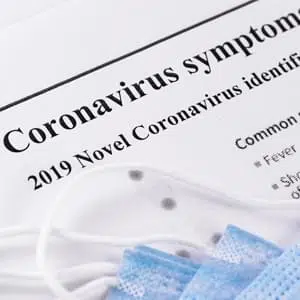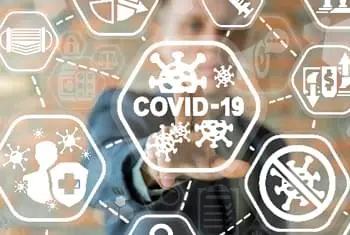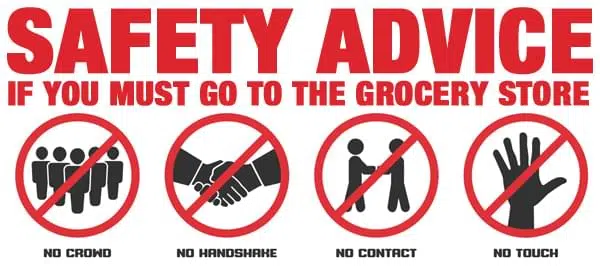We are all doing our part by staying home and – if we must leave the house – practicing social distancing of at least 6 feet of separation. As this new way of life continues on into the weeks ahead, we may have to take a trip to the grocery store for essentials. The Wall Street Journal put together a very simple list of very helpful guidelines for safety advice if you must visit the grocery store, to hopefully help keep everyone as safe and healthy as possible. FOR THE FULL ARTICLE CLICK HERE
Is it safe to go to the grocery store?
Try to minimize visits to the store. “The biggest risk factor is really being around other people,” says Benjamin Chapman, a professor of food safety at North Carolina State University. If you must go, maintain a distance of 6 feet from people to be safe. Use the self checkout section to avoid being too close to cashiers.
Should I wear a mask or gloves to the store?
Initially experts did not advise wearing masks, but now many say wearing a cloth face mask of some sort is useful in preventing the emission of viral particles, which is important since many people may be asymptomatic.
Gloves don’t help much if you’re going to touch your eyes, nose or mouth with them. If you avoid your face and remove them when exiting they can help.
Big one – Try not to use your phone when in the store. If you do, clean it when you get home.

Should I bring wipes with me? What should I wipe down?
Many grocery stores are providing shoppers with wipes. If not, it’s a good idea to bring your own, mainly to wipe the grocery cart.
Wipes can also be used for other high-touch areas in the store like freezer handles or tongs used in self-serve bins.
What other precautions should I take?
Try to avoid exchanging money or credit cards with the cashier. Use a credit-card reader when possible.

If I’m a senior or have an underlying medical condition, should I try to go to the store during special seniors hours?
People over 65 and those who have medical conditions that put them at greater risk of hospitalization and serious illness should avoid going to the grocery store, if possible. Try to order groceries online or have a family member or friend deliver them while taking precautions. If you must visit the store, go during hours reserved for seniors, when the store is likely to be less crowded.
When I get home, what should I do with any paper or plastic bags or packaging?
Though there have been no documented cases of transmission of the novel coronavirus through food packaging, a recent NEJM study found that the virus can live on cardboard for up to 24 hours and on hard surfaces such as plastic and stainless steel for two to three days. But experts noted that the studies were done in a laboratory with high doses of the virus, so it’s unknown if in real life the virus can be transmitted that way. Most likely if someone were to sneeze or cough on a cardboard container, the virus would degrade more quickly due to environmental factors, such as sunlight.
The study didn’t look at paper or plastic bags. Still, the best thing you can do is to toss them and wash your hands. Use the wipes when you need them and you can easily wash your hands after handling anything.

What if someone coughs or sneezes into your food?
If you touch virus particles on raw food and then touch your nose, eyes or mouth, that is a potential source of transmission. But experts note that is very unlikely. To be vigilant, thoroughly wash your hands with soap and water, and don’t eat your food with your hands.
Do raw fruits and vegetables need to be washed with anything special?
Experts urge people not to wash fruits and vegetables with anything but water. The chemicals on wipes and chlorine solutions especially can be dangerous—don’t ingest those.
Will my clothes be contaminated when I come back from the store? Do I need to change my clothes as soon as I get home?
There’s no evidence that the virus can be transmitted through clothing, but it hasn’t been specifically studied. The good news is it can be killed by doing laundry. So if you were in a grocery store where people near you were coughing, it’s a good idea to remove your clothes when you get home. Don’t shake clothing. Place it in your laundry hamper. The CDC recommends laundering contaminated clothes in the warmest appropriate water setting and drying them thoroughly.
Can I get the virus from food handlers who don’t wash their hands well after going to the bathroom?
The CDC says there are no known cases of the novel coronavirus being spread through the fecal-oral route, which is a common route of transmission for stomach viruses like the norovirus.
But a recent study that hasn’t been peer reviewed yet found the virus in the stool of some patients. This route of transmission remains unknown, and experts say it’s unlikely to be contributing significantly to the pandemic.
Read the full original article here
CDC Guidelines on how to protect yourself
What does the CDC recommend to protect yourself from viruses? Watch their video to see more!







